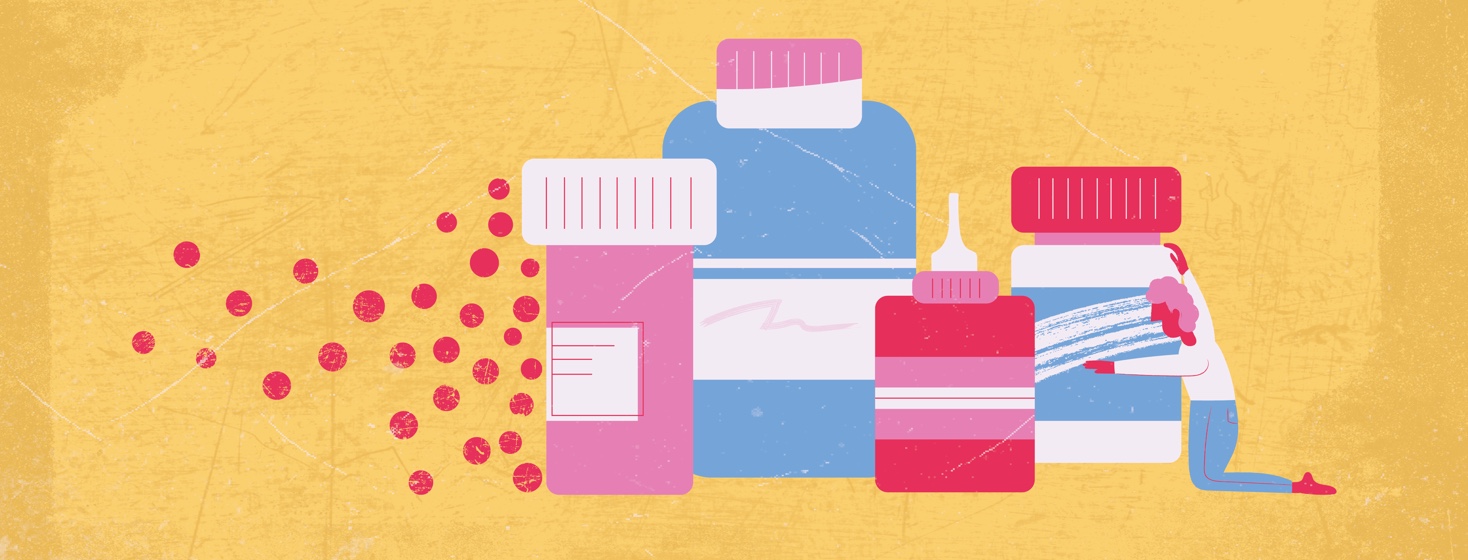Agony Aunt: Pharmacological Interactions With My Restless Legs Syndrome
There are many of us out there who experience the agony of restless legs syndrome (RLS). There are also many of us who suffer from other mental and/or physical conditions. Finding solutions – both pharmacological and supplementary – that ease RLS concurrently with other conditions can be problematic. And I speak from personal experience.
I am just a layperson, but RLS seems to be a “dopamine-dependent disorder," which in layperson’s terms means dopamine is in short supply – i.e. I need more of it. Medications that increase dopamine are called dopamine agonists.1
This is all fine and dandy – until you require a medication that blocks dopamine. From personal experience, I have learned there is a long list of drugs that make my restless legs even more restless than normal.
Medications that worsen my RLS
I have taken a long list of medications for genuine reasons. For the most part, I did not know the offending medication would exacerbate my restless legs. The correlation between RLS and medications is not always well known.
Consultation with multiple healthcare professionals – including my GP, sleep specialist, psychiatrist, and pharmacist – regarding all medications I take, allows me to make a considered decision about the pros and cons of everything. Whether it's prescription, over-the-counter, or supplementary treatments.
Antihistamines
Not only am I prone to hay fever, but due to their sedating effect, I tried to use antihistamines to improve my sleep for many years. As they are primarily an over-the-counter medication (in Australia) I was self-medicating and not receiving professional advice regarding their use – if I was sneezy I took an antihistamine. It was only after seeing a sleep specialist I was told many antihistamines are contraindicated for RLS. By talking to my pharmacist I learned there are some that do not worsen RLS symptoms which is a great relief. No more sneezy days.
Anti-nausea and anti-emetic drugs
I have been subject to migraines since my late teens. Which to be perfectly honest, is a long time ago. Unfortunately, with migraines, I often get nausea – which I understand is quite common. There are some great anti-emetics out there, but many of them make my RLS go ballistic. It is my understanding they block that dopamine I so desperately need. When last I was in hospital, I was prescribed a different medication for nausea and vomiting which worked an absolute treat and left my legs resting comfortably.
Antidepressant medications
For reasons too many to count, in 2016 I commenced taking antidepressants. I went to psychiatrist after psychiatrist to find not only medication that improved depression but one that did not worsen RLS symptoms. I learned SSRIs and SNRIs can often make symptoms worse. But then again, I needed that medication. Despite multiple consultations, we were unable to find medications that didn’t exacerbate RLS.
The best solution we found was in the timing. For me, this meant taking the antidepressant quite early in the morning and ensuring my RLS medications were taken early enough in the evening to take effect before I was kicking like a drunken donkey. Antidepressants are a tricky class of drugs because they can be so necessary and there aren’t a huge number of alternatives. This is definitely one of those cases where a good treating team was essential. I had to liaise with them to weigh up the pros and cons, as well as the different options.
Antipsychotic medications
It’s always scary to include this class of drugs under “personal experience.” Because it sounds like I’m psychotic. I’m not – and never have been. Although there are moments when my RLS and insomnia were so bad – and so enduring – I thought I might slip into psychosis. I have been known to stay awake for three days because of one single antipsychotic tablet. I feel it wasn’t really effective.
Antipsychotics can be used as mood-stabilising medications – which is the reason I am on them. But they can also reduce dopamine neurotransmission. Ironically, I have in the past had low dose antipsychotics prescribed specifically to assist with sleep. They didn’t work. But there are other mood stabilisers that do work for me. And again – much like the antidepressants – sometimes it was all about the dose and timing. Also, like antidepressants, this class of medication is not optional so for me, it’s a matter of working with a good treatment team to find solutions.
Finding the right balance
Finding medications for my mental and physical health, that do not antagonise RLS, has been a steep learning curve. I am very grateful to say I now have a beautiful balance of medications – all safely overseen by trusted professionals.
My legs are restful and my mind and body happy and healthy. Balance has brought change I once could never have imagined, and I could not have found this happy solution on my own.

Join the conversation